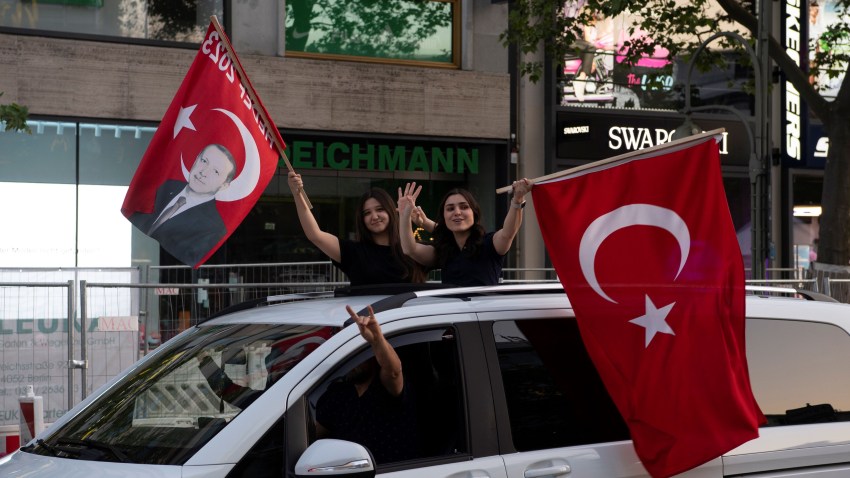When Turkish President Recep Tayyip Erdogan won yet another election last month, motorcades of his Turkish-German supporters rolled through German cities to celebrate his victory. The spectacle has become routine in recent years—as have the expressions of outrage from German politicians and the media over these public demonstrations of joy at the triumphs of a conservative, Islamist and authoritarian leader. Backed by tabloid newspapers such as the Bild Zeitung, the conservative wings of the Christian Democratic Union and its Bavarian sister party, the Christian Social Union, responded by demanding that more pressure be put on migrants to integrate into German society. Meanwhile, the far-right Alternative for Germany, or AfD, party used it as an opportunity to promote anti-migrant nativism.
For the leaders of Germany’s center left among the Social Democratic Party, or SPD, and Greens, these images of Turkish-Germans celebrating the success of Erdogan and his ruling Justice and Development Party, or AKP, generate uncomfortable dilemmas. German center-left politicians express frustration with the willingness of many Turkish-Germans to vote for the AKP and its ultra-nationalist coalition partner, the Nationalist Movement Party, or MHP. But they try to avoid stoking a wider backlash against migrants in general, which the German economy desperately needs to tackle its current labor shortages.
More broadly, the phenomenon highlights the growing role of Turkish-Germans and Kurdish-Germans in German domestic politics. A handful of political leaders from these diasporas, such as Agriculture Minister Cem Ozdemir, have held prominent positions since the 1990s. But in the past decade, a much wider range of figures emerged to play a central role, such as Belit Onay, the Green mayor of Hanover, as well as Serap Guler and Hakan Demir, members of parliament from the CDU and SPD, respectively.

